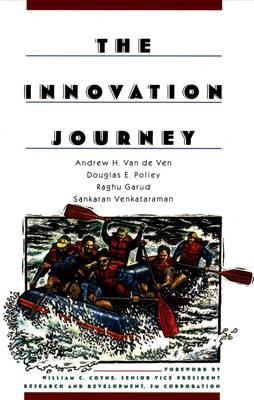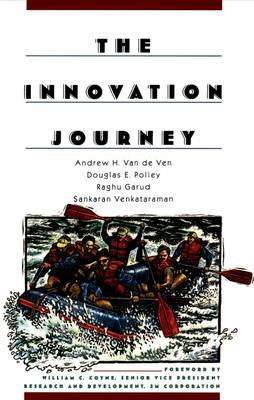
- Afhalen na 1 uur in een winkel met voorraad
- Gratis thuislevering in België vanaf € 30
- Ruim aanbod met 7 miljoen producten
- Afhalen na 1 uur in een winkel met voorraad
- Gratis thuislevering in België vanaf € 30
- Ruim aanbod met 7 miljoen producten
Zoeken
€ 74,45
+ 148 punten
Omschrijving
The Innovation Journey presents the results of a major longitudinal study that examined the process of innovation from concept to implementation of new technologies, products, processes, and administrative arrangements. Its findings call into question most of the explanations of the innovation process that have been proposed in the past. The Minnesota Innovation Research Program, on which this book is based, involved over 30 researchers who undertook longitudinal studies that tracked the development of 14 diverse innovations in real time and in their natural field settings. Studying its results, the authors find that the innovation journey is neither sequential and orderly, nor is it a matter of random trial and error; rather it is best characterized as a nonlinear dynamic system. The system consists of a cycle of divergent and convergent activities that may be repeated over time and at different organizational levels if enabling and constraining conditions are present. This divergent-convergent cycle is found to be the underlying dynamic that explains the development of corporate cultures for innovation, learning among innovation team members, leadership behaviors of top managers or investors, building relationships and joint ventures with other organizations, and developing an industrial infrastructure for innovation. Resource investments and organizational structure enable this innovation cycle, while external institutional rules and internal focus draw the boundaries of the journey. The authors conclude with advice for innovation managers and entrepreneurs: learn to "go with the flow," because while they can learn to maneuver through the innovation journey, they cannot control its flow.
Specificaties
Betrokkenen
- Auteur(s):
- Uitgeverij:
Inhoud
- Aantal bladzijden:
- 440
- Taal:
- Engels
Eigenschappen
- Productcode (EAN):
- 9780195341003
- Verschijningsdatum:
- 29/01/2008
- Uitvoering:
- Paperback
- Formaat:
- Trade paperback (VS)
- Afmetingen:
- 155 mm x 231 mm
- Gewicht:
- 598 g

Alleen bij Standaard Boekhandel
+ 148 punten op je klantenkaart van Standaard Boekhandel
Beoordelingen
We publiceren alleen reviews die voldoen aan de voorwaarden voor reviews. Bekijk onze voorwaarden voor reviews.











